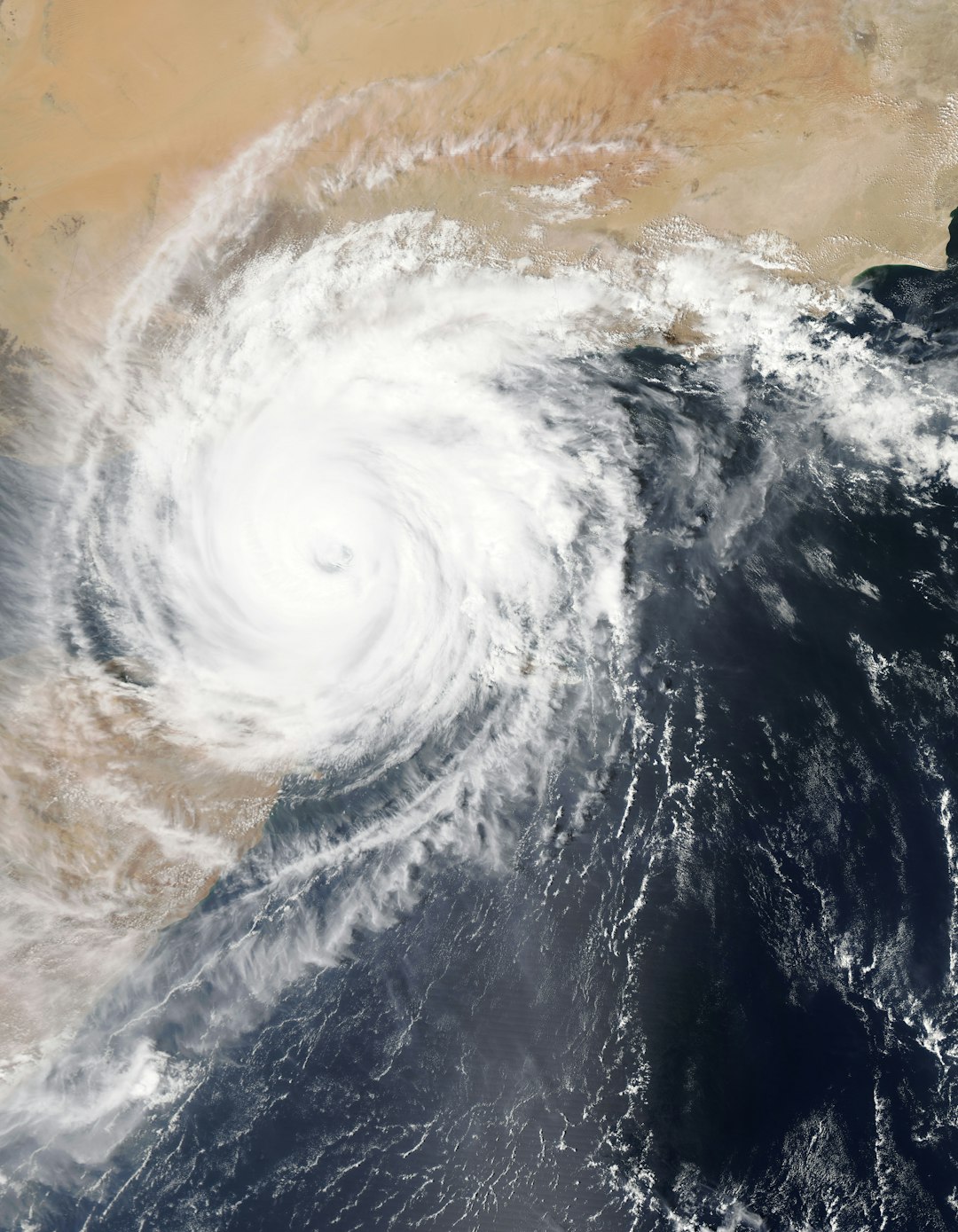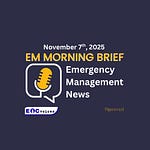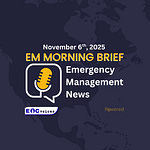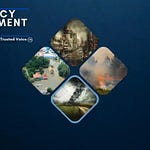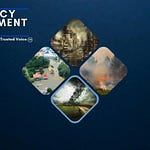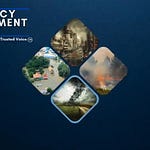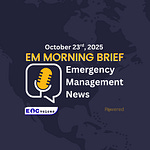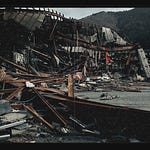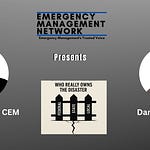How Do We Take Emergency Management Seriously If We Do Not Support Research?
There has been a debate about whether or not someone should have a college degree to be an emergency manager. The second side of the argument is whether we should have emergency management degree programs. For full disclosure, I am an emergency management educator. If you read or listen to the Emergency Management Network, you know that I also write and research trends in emergency management.
The field of emergency management is "the discipline and profession of applying science, technology, planning, and management to deal with extreme events that can injure or kill large numbers of people, do extensive property damage, and disrupt community life. When such events occur and cause extensive harm, they are called disasters" (Hoetmer, 1991). This definition eloquently defines emergency management, explaining what a disaster is, and exemplifies how academia and research provide conceptual and practical tools for emergency managers. Researchers tell us who we are, what we do, how and why we do the things we do, and provide guidance and advice as to where we should be going.
Emergency management relies on researchers to observe, evaluate, and provide references and reports offering recommendations; reflect on how and what we have done; and help us define, recognize, and understand the multitude of issues we face in emergency management. Dr. Carol Cwick argues that similar disciplines fund research through education programs and advance beyond a mere job to a profession. She continues by stressing that without higher education programs, the field of emergency management is doomed to disappear and be absorbed by public safety programs. Her full interview will be published soon.
How do we take a field or discipline seriously if we do not research the issues and the programs' effectiveness?
There are areas of study dedicated to the supply chain in the business world. They study disruptions, forecast needs and increasing product varieties, shorter product life cycles, ever-growing expectations of consumers, and rising cost competition due to globalization. The business makes forecasting essential to matching supply with demand. Hundreds of publications, TV news programming, think tanks, and thousands of books are dedicated to business research. You rarely hear people questioning the need for business and MBA education programs.
Over the last few decades, Scholars researching emergency management have accumulated literature. This has opened great opportunities for further development of EM theories and strategies.
I was asked why we even care to do disaster research. The United Nations Office for Disaster Risk Reduction estimates that globally from 2000 to 2012, disasters killed 1.2 million people, affected 2.9 billion others, and claimed $1.7 trillion in material damage. The United States has moved into a "new normal" of frequent, billion-dollar hurricanes, eight of the ten costliest occurring since 2004. The Department of Defense warns that climate change threatens national security and will cause global political instability due to "prolonged drought and flooding … food shortages, desertification, population dislocation, mass migration, and sea level rise." Not a week goes by without news of a new technological "accident" and the long-term malignant impacts of chemicals, radiation, plastics, and petroleum—the material markers of technological society—on our bodies, communities, and the planet.
How do Colleges and Universities Make A Difference In Emergency Management?
Academic research looks beyond emergency management's immediate needs; the university's role involves exploring all phases of disaster. As an institution of higher education and research, they, by definition, are responsible for contributing to the body of knowledge for emergency management. And to society as a whole.
In addition to expanding education programs, institutions study the intersection of disasters and policy. An example of how research contributes to society is the studies completed on post-disaster homelessness.
The roles of universities in research
Research may be one of the most misunderstood components of emergency management. It is often regarded by disaster responders as an esoteric undertaking carried out by individuals with little understanding of "the real world" and less understanding of disaster issues.
In reality, research into disasters is one of the most vital functions that can be carried out by those involved in such events. I had the opportunity to interview Dr. Daniel P. Aldrich, Director of the Security and Resilience Studies Program at Northeastern University. He researches post-disaster recovery. Aldrich's book "Black Wave: How Networks and Governance Shaped Japan's 3/11 Disasters" is an excellent example of how disaster research can shape policy and how emergency management professionals approach preparedness and recovery.
I am not arguing that we need to have a bunch of academics lead the way. The best disaster researchers are practitioners with substantial experience in disaster response and planning because they know what questions must be asked.
The research is to determine the truth about the event itself.
As Craig Fugate stated, lessons learned and not implemented are lessons observed. Mistakes and missed steps will continuously be repeated without such efforts and application of the resulting knowledge to the disaster planning and response process.
Until the last decade, disaster research had been limited to narrative descriptions of the event(s) that precipitated the disaster, reports on the number of persons killed, injured, or displaced, and descriptions of what interventions were or were not applied.
After Action Reports (AAR) could be a way for researchers to learn how to improve response and explore how effective planning and exercises are. Unfortunately, many of these reports have been biased and self-serving, as the responding agencies have performed them.
AARs have had little value in eliminating or modifying hazards, reducing risks, improving capacities, reducing vulnerability, enhancing preparedness for responses to future events, or designing and implementing future relief activities. AARs do not give much insight into how the response and actions may affect future responses.
Disaster research is performed retrospectively, after the impact phase, and during the recovery activities. This is because collecting information during a disaster has ethical considerations and may be deemed inappropriate.
The design, acceptance, and implementation of such studies in these settings remain tasks for the future. Universities and other agencies should jointly consider and improve the above matter.
Why Emergency Management Must Support Education Programs
The roles of universities span all phases of the disaster cycle. The university is essential during the impact, emergency phase, risk reduction strategies, preparedness, and mitigation. The roles of the university in disaster management include disaster education, relief, and support to the affected community, and grasping the situation from a research perspective.
We also have significant roles in mid-term and long-term support, such as academic contributions, policy proposals,
A university also has a role in educating, developing scenarios, and providing basic and advanced training. Furthermore, by establishing coalitions, it becomes possible for the university to do research suited to the needs of the particular community.
Universities provide a universe of knowledge and expertise that can be readily mobilized when needed. It is often in the interdisciplinary overlap of professional domains where the solutions lie. Universities can readily provide the breadth and width of skills conducive to finding the optimum solutions.
With strong management skills and available assets, academia can make a significant and lasting contribution to the profession of emergency management.



